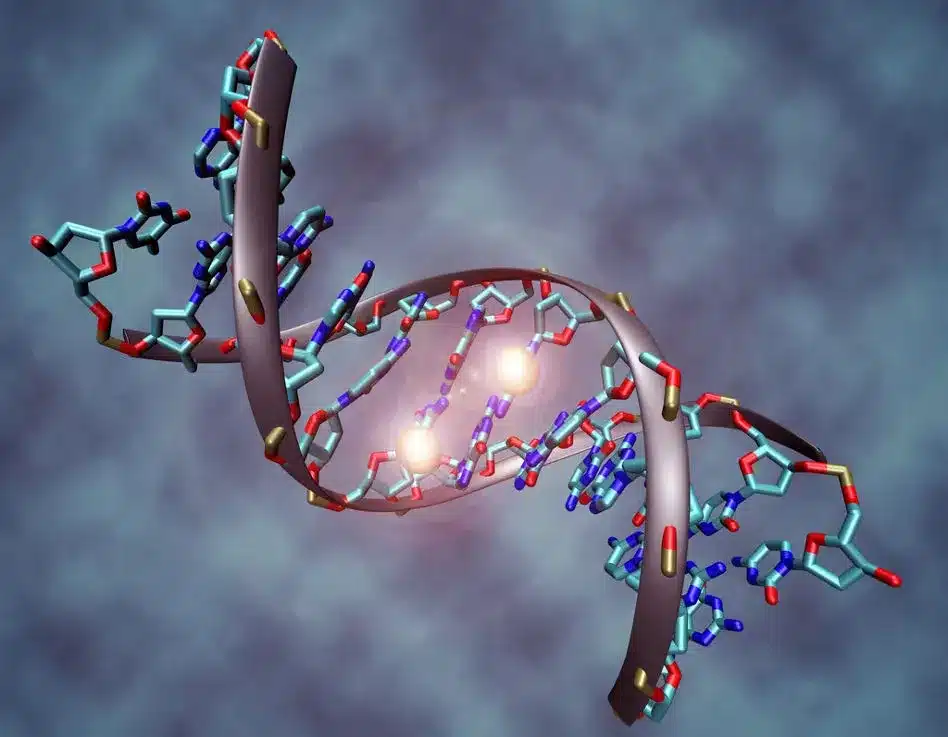About Epigenetics:
- Epigenetics is the study of how cells control gene activity without changing the DNA sequence.
- “Epi-“means on or above in Greek, and “epigenetic” describes factors beyond the genetic code.
- Epigenetic changes are modifications to DNA that regulate whether genes are turned on or off.
- These Epigenetic modifications are attached to DNA and do not change the sequence of DNA building blocks.
- Within the complete set of DNA in a cell (the genome), all of the modifications that regulate the activity (expression) of the genes is known as the epigenome.
- Because epigenetic changes help determine whether genes are turned on or off, they influence the production of proteins in cells.
- This regulation helps ensure that each cell produces only proteins that are necessary for its function. For example, proteins that promote bone growth are not produced in muscle cells.
- Patterns of epigenetic modification vary among individuals, in different tissues within an individual, and even in different cells within a tissue.
- Environmental influences, such as a person’s diet and exposure to pollutants, can impact the epigenome.
- Epigenetic modifications can be maintained from cell to cell as cells divide and, in some cases, can be inherited through the generations.
- Errors in the epigenetic process, such as modification of the wrong gene or failure to add a chemical group to a particular gene or histone, can lead to abnormal gene activity or inactivity.
- Altered gene activity, including that caused by epigenetic errors, is a common cause of genetic disorders.
- Conditions such as cancers, metabolic disorders, and degenerative disorders have been found to be related to epigenetic errors.
Q1: What is Deoxyribonucleic acid (DNA)?
DNA, or deoxyribonucleic acid, is the hereditary material in humans and almost all other organisms. Nearly every cell in a person’s body has the same DNA. Most DNA is located in the cell nucleus (where it is called nuclear DNA), but a small amount of DNA can also be found in the mitochondria (where it is called mitochondrial DNA or mtDNA). Mitochondria are structures within cells that convert the energy from food into a form that cells can use.
Last updated on June, 2025
→ UPSC Notification 2025 was released on 22nd January 2025.
→ UPSC Prelims Result 2025 is out now for the CSE held on 25 May 2025.
→ UPSC Prelims Question Paper 2025 and Unofficial Prelims Answer Key 2025 are available now.
→ UPSC Calendar 2026 is released on 15th May, 2025.
→ The UPSC Vacancy 2025 were released 1129, out of which 979 were for UPSC CSE and remaining 150 are for UPSC IFoS.
→ UPSC Mains 2025 will be conducted on 22nd August 2025.
→ UPSC Prelims 2026 will be conducted on 24th May, 2026 & UPSC Mains 2026 will be conducted on 21st August 2026.
→ The UPSC Selection Process is of 3 stages-Prelims, Mains and Interview.
→ UPSC Result 2024 is released with latest UPSC Marksheet 2024. Check Now!
→ UPSC Toppers List 2024 is released now. Shakti Dubey is UPSC AIR 1 2024 Topper.
→ Also check Best IAS Coaching in Delhi
























